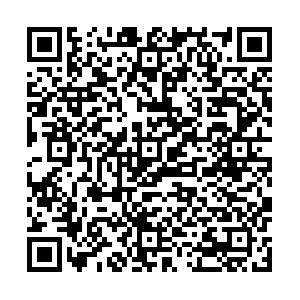Nabokov’s Crooked Mirror:The Artist’s False Double in Despair
-
摘要:
本文梳理纳博科夫在《绝望》这本小说中使用的“凹凸镜”和“假分身”两个隐喻,以阐发他的“艺术即明目张胆地欺骗”此一美学。对纳博科夫而言,艺术既不比现实优越,也不独立于现实。反之,艺术只能是现实的拙劣摹本。而书中的角色虽然尝试模仿造物主,也只能是画虎不成反类犬。纳博科夫的美学要求读者对艺术有一种不同的态度:我们既不该轻易地代入书中的角色,也不该盲目地赞扬艺术,而应该借由明辨原型和赝品的区别,以锻炼我们的思辨批判能力。对我们的后真相时代而言,纳博科夫的美学提供一个伦理范式,即真相虽然隐晦,但并未被毁灭。寻求真相更是我们的时代义务。
Abstract:The article explicates Nabokov's metaphors ofcrooked mirrorsandfalse doublesin his novelDespair, which articulate his aesthetics that art is self-obvious deception. For Nabokov, art is neither superior to nor independent of reality, but is rather its inferior mimic. Thus Nabokov's simulacrum always refers to the revered model:the author himself. Nabokov's aesthetics challenges the readers to have a different attitude toward art:rather than sympathy or appreciation, we should instead cultivate our critical discernment by distinguishing between the simulacrum and the true model. In our age of post-truth, Nabokov's aesthetics provides us an ethical paradigm where reality is concealed but not altogether cancelled, a reality that is rather the prize that the readers are invited to actively seek out
-
Key words:
- Vladimir Nabokov /
- Despair /
- simulacrum /
- the false double /
- the mirror metaphor /
-
[1] Alexandrov,Vladimir E. Nabokov's Otherworld. Princeton:Princeton University Press,1991. [2] Appel,Alfred,and Vladimir Nabokov."An Interview with Vladimir Nabokov."Wisconsin Studies in Contemporary Literature 8,no. 2(1967):127-52. [3] Baudrillard,Jean."Simulacra and Simulations."In Jean Baudrillard:Selected Writings. Edited by Mark Poster. California:Stanford University Press,2002,166-84. [4] Deleuze,Gilles". Plato and the Simulacrum."Translated by Rosalind Krauss. October 27(1983):45-56. [5] Foucault,Michel. The Order of Things:An Archaeology of the Human Sciences. London:Routledge,2002. [6] Karlinsky,Simon."Illusion,Reality,and Parody in Nabokov's Plays."Wisconsin Studies in Contemporary Literature 8,no. 2(1967):268-79. [7] Nabokov,Vladimir. Despair. New York:Vintage Book,1989. [8] ——. Lectures on Literature. New York:Harcourt Brace Jovanovich,1980. [9] ——. Speak,Memory:An Autobiography Revisited. New York:Vintage International,1989. [10] Owens,Craig". Photography 'en abyme'."Photography 5(1978):73-88. [11] "Oxford Word of the Year 2016|Oxford Languages."Accessed March 25,2022. https://languages. oup. com/wordof-the-year/2016/,[March 25,2022]. [12] Plato. Plato's Theory of Knowledge:The Theaetetus and the Sophist of Plato. Translated by Francis Cornford. London:Routledge & K. Paul,1949. [13] ——. The Republic of Plato. Translated by Allan Bloom. 2nd ed. New York:HarperCollins Publishers,1991. [14] Rosenfield,Claire."'Despair' and the Lust for Immortality."Wisconsin Studies in Contemporary Literature 8, no. 2(1967):174-92. [15] ——."The Shadow within:The Conscious and Unconscious Use of the Double."Daedalus 92,no. 2(1963):326-44. [16] Troubetzkoy,Wladimir."Vladimir Nabokov's Despair;The Reader as 'April's Fool'."Cycnos 12,no. 2 (1995):55-62. [17] Wood,Michael. The Magician's Doubts:Nabokov and the Risks of Fiction. London:Random House,1994. -

 点击查看大图
点击查看大图
计量
- 文章访问数: 358
- HTML全文浏览量: 97
- PDF下载量: 46
- 被引次数: 0



 下载:
下载:

